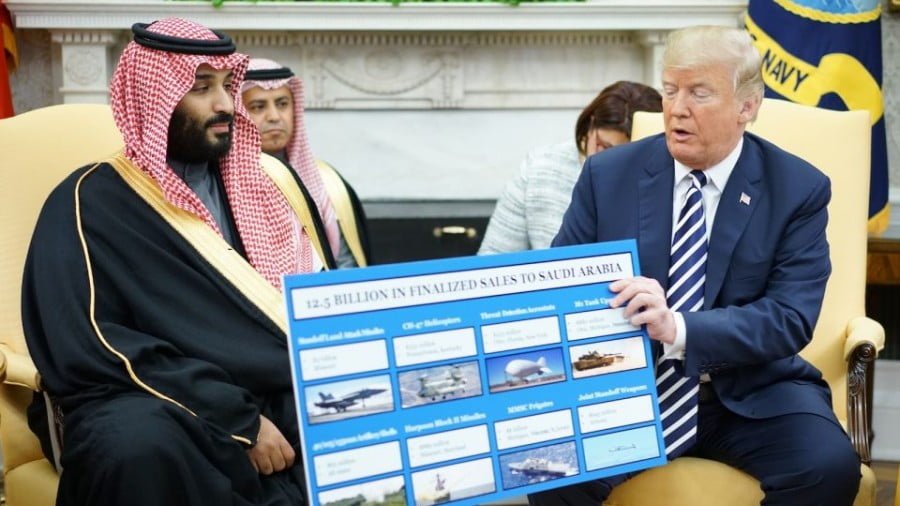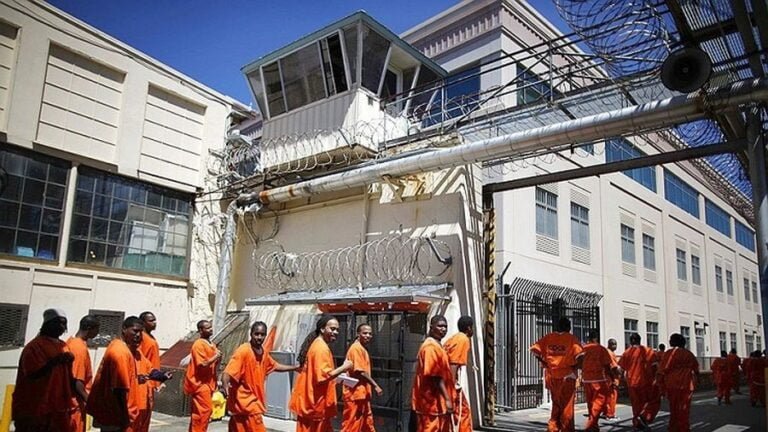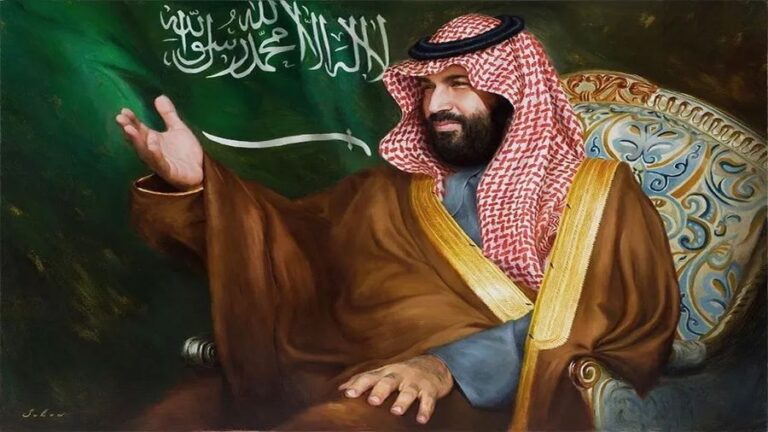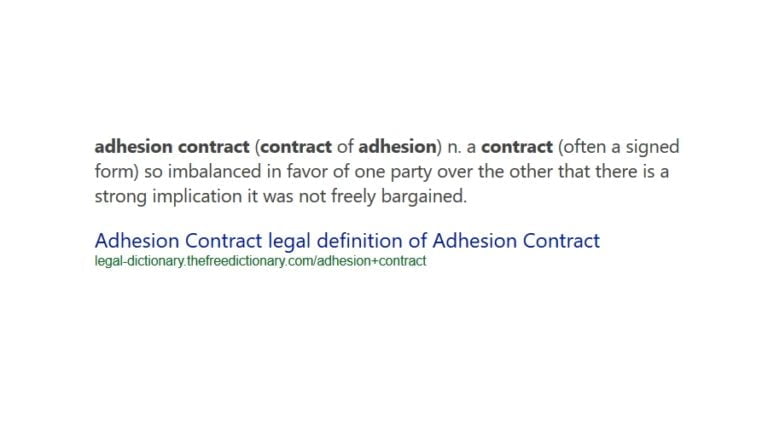MbS Feted in the US Despite War Atrocities in Yemen
The current US tour of Crown Prince Mohammed bin Salman, known as MbS, is a triumph of multi-million-dollar post-truth public relations.
The fact that MbS also happens to be destroying Yemen is just a minor glitch. Smooth PR is always able to secure the maxim that not all dictators, Arab or otherwise, are equal; after all “our” bastards can get away with everything.
Until they can’t – as in Saddam Hussein or Hosni Mubarak.
MbS’s PR orb sucks up everything, from a softball 60 Minutes interview to schmoozing with a galaxy of high-profile figures such as Mike Pompeo, Mike Pence, Henry Kissinger, Hillary Clinton, Michael Bloomberg, Rupert Murdoch, close pal Jared Kushner, James Mattis, Barack Obama, John Kerry, David Petraeus, Condoleezza Rice, Bill Gates, Elon Musk, Peter Thiel, Tim Cook, and the CEOs of Lockheed Martin, Boeing, Amazon, Uber and the Walt Disney Company.
MbS might as well be enshrined as the geopolitical Bono – and he doesn’t even need to sing “One Love.”
All that is supported by a glossy 97-page hagiography by the media group AMI, which publishes ‘The National Enquirer’ and ‘US Weekly’, hitting all the crucial talking points (“our closest Middle East ally destroying terrorism”; “transforming the world”; “the most influential Arab leader”; “improving lives of his people and hopes for peace”).
MbS was welcomed by both Harvard and MIT. He was lauded for his unprecedented – at least in Arabia – wisdom to build the world’s biggest solar power plant, a project expected to create up to 100,000 jobs and save billions of dollars.
He was reverentially allowed a free pass on virtually any subject – from refusing to admit the global march of Wahhabism as a key source of terrorism to his alleged promotion of “religious tolerance.” Of course, Iran’s Ayatollah Khamenei, is, by comparison, in the Crown Prince’s own words, “a Hitler.”
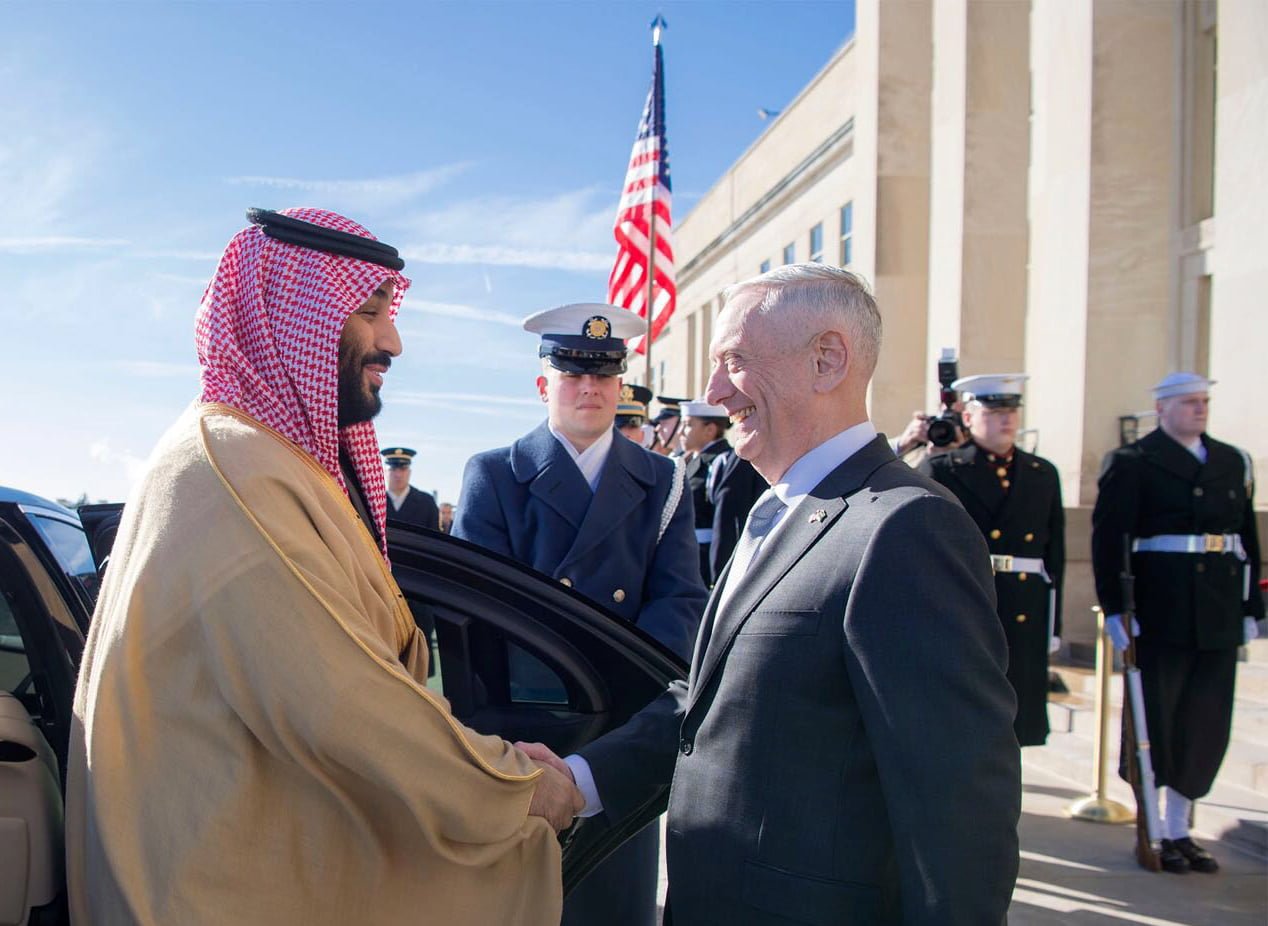
MbS at least admitted that the House of Saud’s building of mosques and madrasas all across the lands of Islam was a key Cold War gambit, when “allies” – as in Washington – were fighting the Soviet Union no holds barred.
He said the House of Saud had “lost track” of what happened – as if the jihad in Afghanistan and the Kalashnikov culture that enveloped Pakistan were paranormal phenomena. Now, “we have to get it all back.”
Nonsense. The House of Saud’s only policy towards Salafi jihadism – all forms of which are a direct offspring of the Wahhabi matrix – has always been that it’s better to have clusters of jihadis roaming abroad than having to fight them inside Saudi borders.
MbS also said that jihadist funding now comes largely from Saudi-based “foundations” rather than Riyadh. As if the self-elevated Crown Prince – who reached his position via a decree laboriously extorted from his mentally ill father – could not get rid of these “foundations” in a flash.
Moreover, Wahhabi Saudi Arabia remains a model of religious intolerance – which is a serious, direct contradiction of the precepts of Islam. Christians, Hindus, Shi’ites (a significant 15% of the overall population), Sufis and even any non-Wahhabi Sunnis feel they’re being constantly repressed and/or persecuted.
Killing Yemen
And then there’s MbS as the Butcher of Yemen.
The House of Saud launched a devastating bombing campaign against the Houthis three years ago, with MbS playing the role of brand new, inexperienced Defense Minister.
The bombing is indiscriminate – it does not spare civilian infrastructure, from bridges to apartment buildings in Sana’a, as well as schools and hospitals. The House of Saud-established air, sea and land blockade also cuts off much-needed supplies of food and medicine.
The numbers are appalling. At least 22.2 million Yemenis of all ages – out of a total population of 27.5 million – need serious humanitarian assistance, and that includes 11.3 million children on the verge of starvation.
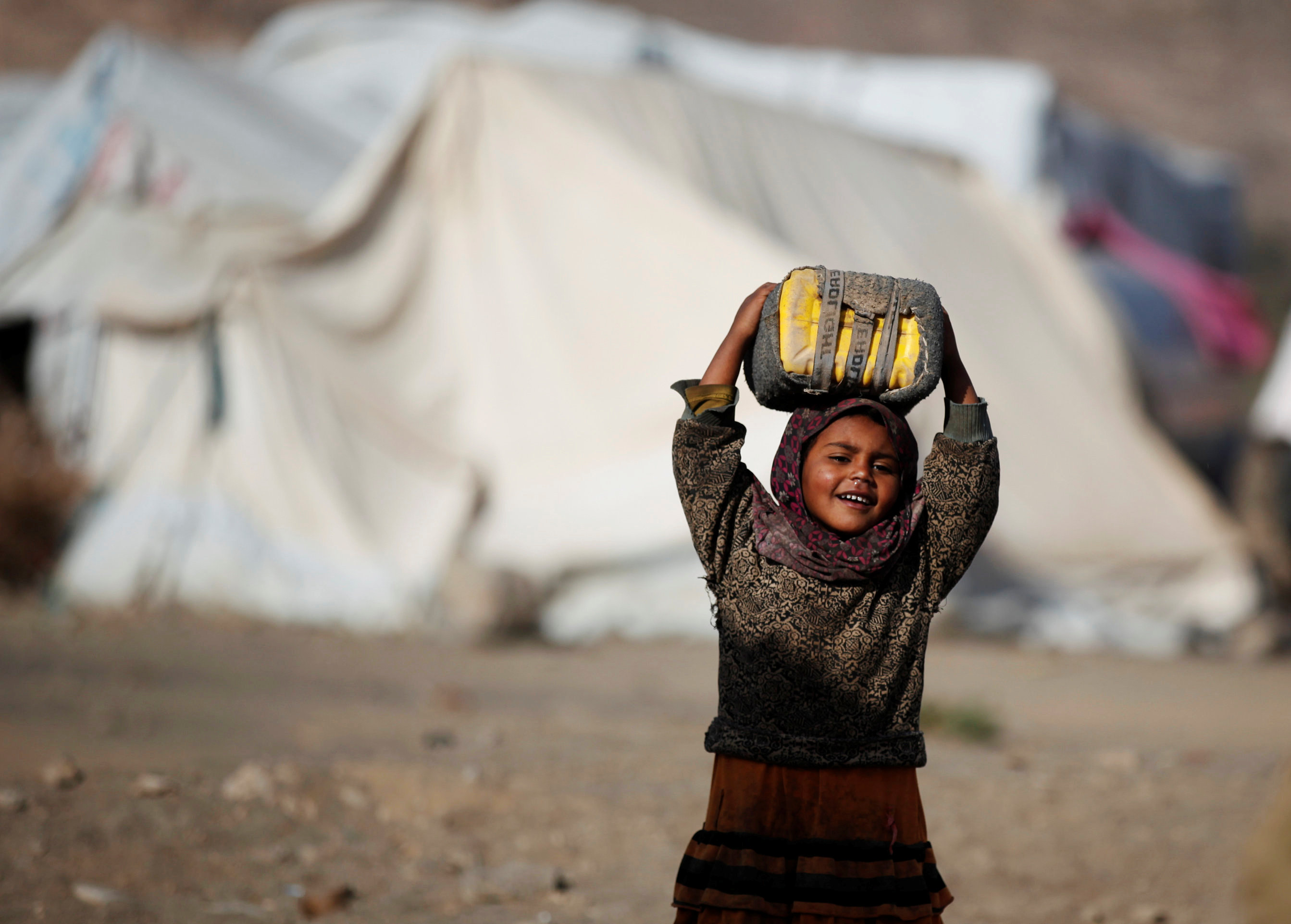
The House of Saud and their “allies” such as the UAE have hit Yemen with over 15,000 airstrikes, using weapons manufactured by the US and the UK, and bombing raids on Yemeni cities with F-16s and F-18s.
At least 5,000 children have been killed; 53,000 civilians have been wounded; 1.9 million children cannot go to school; at least a million cholera cases have been recorded, and another outbreak is imminent.
MbS’s spin is that the Houthis are agents from Iran, which is more nonsense. To start with, their brand of Shi’ism is quite different. Last year in Tehran I got confirmation about diplomatic and some financial support to the Houthis, but not military; after all, Yemen is considered a much lower priority by the Iranian leadership compared to Syria, Iraq and Lebanon.
The Houthis are a de facto purely Yemeni, independent political and military movement, and are not remote-controlled from Tehran.
What happens on the ground is a collaboration between the House of Saud and al-Qaeda in the Arabian Peninsula (AQAP). As much as US intel insists drones hitting Yemen are essential in the fight against AQAP, on the ground we increasingly have soldiers working for Riyadh incorporated into AQAP to fight the Houthis. It makes total sense because Wahhabism is the matrix that generated al-Qaeda – and fighting Shi’ites of whatever persuasion is a “holy” mission.
And then there’s Xi Jinping
The fact that MbS is the current darling of the West speaks volumes about the West’s “moral values”, not to mention the wonders of purely cosmetic “reforms” sold by a torrent of spin.
Cutting through the fog, there are only three factors that really matter as far as the House of Saud is concerned:
- What happens with the Aramco IPO. New York, London and Hong Kong remain in fierce contention. All eyes are focused on what China’s role in the game will be.
- Whether OPEC and Russia will clinch a deal on a 20-year oil production cap.
- When China will tell the House of Saud to switch to the petro-yuan.
The days are gone when Kissinger, after the 1973 oil shock, worked out how to recycle the House of Saud’s petrodollars towards the West, including lucrative weapons contracts such as those perpetuating the war on Yemen.
The long-term drive to use the petro-yuan not only will lead to less and less buying of US Treasury bonds; it will also coincide with less demand for crude oil as a commodity to the benefit of solar and wind power.
MbS is racing against the clock. For the moment, he wins his PR war in the US even as he miserably loses his war on Yemen. But all bets are off on how he handles Wahhabi intolerance, Riyadh’s dependence on oil and, most of all, Moscow and Beijing.

